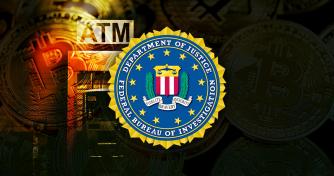 SBF Trial: Lawyers argue Bankman-Fried needs more Adderall in order to participate in trial
SBF Trial: Lawyers argue Bankman-Fried needs more Adderall in order to participate in trial SBF Trial: Lawyers argue Bankman-Fried needs more Adderall in order to participate in trial
ADHD allegedly medication withheld from Bankman-Fried, impacting participation in high-profile crypto trial

AI generated using CC-licensed image from Cointelegraph.
According to a recent court letter, Samuel Bankman-Fried has reportedly faced difficulties concentrating during his ongoing criminal trial due to being denied access to his prescribed ADHD medication.
As Cohen & Gresser LLP stated in a letter to Judge Lewis A. Kaplan dated Oct. 15, Bankman-Fried takes a prescribed dose of Adderall for attentional issues but has been unable to take it during trial hours for the past two weeks.
The letter asserts that without access to his medication, Bankman-Fried “has not been able to concentrate at the level he ordinarily would,” raising concerns about his ability to participate as the defense presents its case meaningfully.
According to the letter, Bankman-Fried has been given one dose early in the morning before being transported to the courthouse, which wears off before the trial starts. He does not receive another dose until returning to jail in the evening after proceedings conclude for the day.
To address the issue, the court proposed giving Bankman-Fried an extended-release 20mg dose of Adderall on Monday morning before the trial resumes. However, the defense expressed uncertainty about whether the Bureau of Prisons could provide this and whether it would be effective if administered.
As a result, they requested either adjourning Tuesday’s proceedings to resolve the matter or permitting counsel to provide Bankman-Fried’s medication in court. The court has not yet issued a ruling on the request.
Mental health medication under custody
While defendants are subject to restrictions while in custody, medical experts and advocacy groups have argued that denying necessary medication can impair an individual’s ability to participate in their defense actively.
For example, the American Bar Association (ABA) has previously expressed concerns about detention facilities restricting prescribed mental health drugs, saying this violates rights and compromises a defendant’s competency to stand trial. However, correctional facilities often cite safety concerns and protocols as reasons for limiting access.
The ABA documentation on the treatment of prisoners allows for “emergency” medication to be given for mental illness, but it should be “discontinued within 72 hours.”
“(e) In an emergency situation requiring the immediate involuntary medication of a prisoner with serious mental illness, an exception to the procedural requirements described in subdivision (d) of this Standard should be permitted, provided that the medication is administered by a qualified health care professional and that it is discontinued within 72 hours unless the requirements in subdivision (d) of this Standard are met.”
Bankman-Fried is yet to be found guilty by a jury of his peers, while those seeking justice for the victims of the FTX collapse will undoubtedly be looking for a concrete verdict without potential avenues for appeal based on technicalities such as the withholding of medication.
However, complications arise as past court decisions have also set precedents regarding the medication of detainees to stand trial. While much of the documentation relates to ‘forced medication,’ the U.S. Supreme Court has previously addressed when and under what circumstances mentally ill individuals within the criminal justice system may be medicated for treatment or to restore competency to stand trial.
The delicate balance between medication to “restore competency” versus the individual right to healthcare could play an increased role in the trial as it advances.
The ongoing trial relates to charges that Bankman-Fried defrauded investors and misused FTX customer funds before the company’s failure in Nov. 2022. The court letter provides perspective on issues impacting his participation as the high-profile crypto case continues.




































































